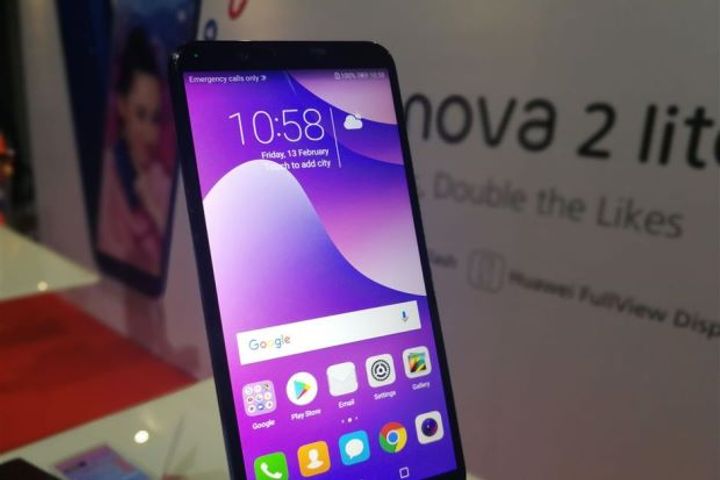 New Huawei, Xiaomi Handsets Enter 'Grave of Foreign Brands'
New Huawei, Xiaomi Handsets Enter 'Grave of Foreign Brands'(Yicai Global) July 27 -- Following hard on the heels of Xiaomi's release of the Redmi Note 5 smartphone in South Korea, Huawei Technologies, which has been in the Korean market for many years, has also introduced its Nova Lite 2 smartphone there.
The two Chinese brands will face cruel competition since they have ushered new models into the South Korean market almost simultaneously, local industry insiders believe.
SK Telecom, South Korea's largest mobile service provider, will introduce Huawei's Nova Lite 2 smartphone locally, it said yesterday. This is the first new model the Chinese phone maker has popped out in the Korean market in one year.
The new handset will go on sale there in the middle of next month and will first be distributed through SK Telecom's direct online sales channels before becoming available in offline stores, an insider from the Korean communications sector told Yicai Global. The Nova Lite 2 will be priced lower than Redmi Note 5, though the two models have roughly the same hardware, per the insider.
"Though its price has not been determined yet, Nova Lite 2's factory gate price will likely be around KRW250,000 (USD225), given that the Redmi Note 5 is priced at KRW299,000 and the Nova Lite 2 retailed for JPY23,000 (USD207) when it was unveiled in the Japanese market," the insider said.
Xiaomi and its local distributor G-Mobi Korea held a promotional event in South Korea on July 16. It also teamed up with SK Telecom and KT, the country's two leading telecom companies, to introduce the Redmi Note 5 smartphone in the local market.
Battle Brewing
"A battle between Chinese smartphone brands is about to unfold in South Korea," said Li Guoxian, professor of the College of Political Science and Economics at Korea University in South Korea.
"Experts have long called South Korea 'the grave of foreign products' because of its unique market characteristics and the rise of local brands," Li told Yicai Global. "Retailers such as Walmart and Carrefour Group, consumer electronics companies such as HTC and Sony, and even world-class firms such as Tesla and HSBC Group have all suffered setbacks in South Korea."
He showed two sets of data to illustrate. Samsung Electronics, Apple and LG together claimed nearly 99 percent of total smartphone sales in South Korea last year, while the other overseas brands combined were left with only about 1 percent. Samsung operates 186 after-sales service outlets and nearly 1,000 retail stores in the country.
Huawei teamed up with South Korea's mobile virtual network operator mediaLog to decant its X3 smartphone into the country in September 2014. Though Huawei introduced six models into the local market, their sales were poor, with less than 100 units selling per day, forcing it to substantially cut prices to clear off stocks.
Other overseas manufacturers have also been busting frequent moves in the Korean market lately, Yicai Global found.
Japan's Sharp has served up its Aquos S3 smartphone in South Korea in partnership with SK Telecom, it announced in June. BlackBerry has introduced a new handset, the KEY2, through a virtual network operator, it also said, breaking from a tradition by which it only unveils models via the country's top three telecom companies.
The rise of virtual operators in South Korea has given new impetus to overseas manufacturers' competition in the local market, Li said.
Editor: Ben Armour